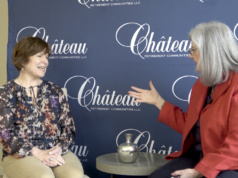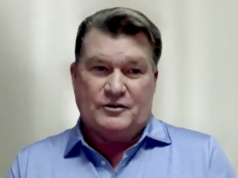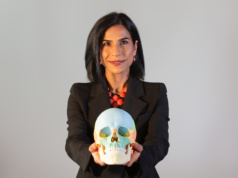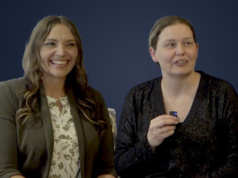Take advantage of the resources of the Alzheimer’s Association to help care for families dealing with a senior loved one with Alzheimer’s or dementia. Alexis Bonoff, Program Director of the Alzheimer’s Association in Washington state, joins Suzanne to talk about the resources and programs.
Alexis says, “We do presentations, and that can be as short as 15 minutes and as long as an hour, or an hour and a half if you got lots of questions. We do these in private groups, like the rotary club. But it also could be like a lunch-and-learn at your business. They could be as broad as something like the 10 warning signs, and learning the difference between what is normal aging and what is something we should go to the doctor about. And then get as specific as ways to deal with somebody who’s already [facing Alzheimer’s]. So we have a huge range of programs.”
She adds, “Those tricks and tools are so essential to the everyday life of a caregiver. It’s also something I’d say our support groups are really great at. A professional can tell you one thing, but somebody who is also in your position, who’s going through the same thing you, ‘[maybe] that didn’t work for me, but I’ve got another idea for you.’ We can do them any style you like. We do virtual ones that are available around the world. We’ve got one that’s monthly where I live, and we get people from Greece, so it’s very cool to see the range [of people]. But the in-person ones are great too. Some people feel a little shyer about asking questions virtually, whereas in person they’re more comfortable.
“A lot of people say things like, ‘I lost my keys three times last week. Do I have Alzheimer’s?’ And I can say, ‘I don’t know, but let’s talk more into that.’ What’s normal forgetfulness, what’s normal aging, and what might be a sign you might need to talk to your doctor. A lot of people say I just got diagnosed, or my friend just got diagnosed; ‘what do I do now?’ And then I send them to our hotline for sure… I think a big one for us Americans is, when do you take the keys away, or when do you decide to stop driving? We are very attached to our cars, but that can be a very dangerous thing with somebody with Alzheimer’s.
“One thing about the hotline: they can help give you a plan if you are [asking] how do I talk to my person about this? They can help you.”
Visit alz.org/walk and enter your zip code to find the Walk nearest you to register or donate. Check out alz.org to learn more. Reach master level clinicians at their 24/7 help line at 800-272-3900.
Hear more podcasts about the Walks.
* Check out our affiliate podcast Alzheimer’s Speaks: https://alzheimersspeaks.com














